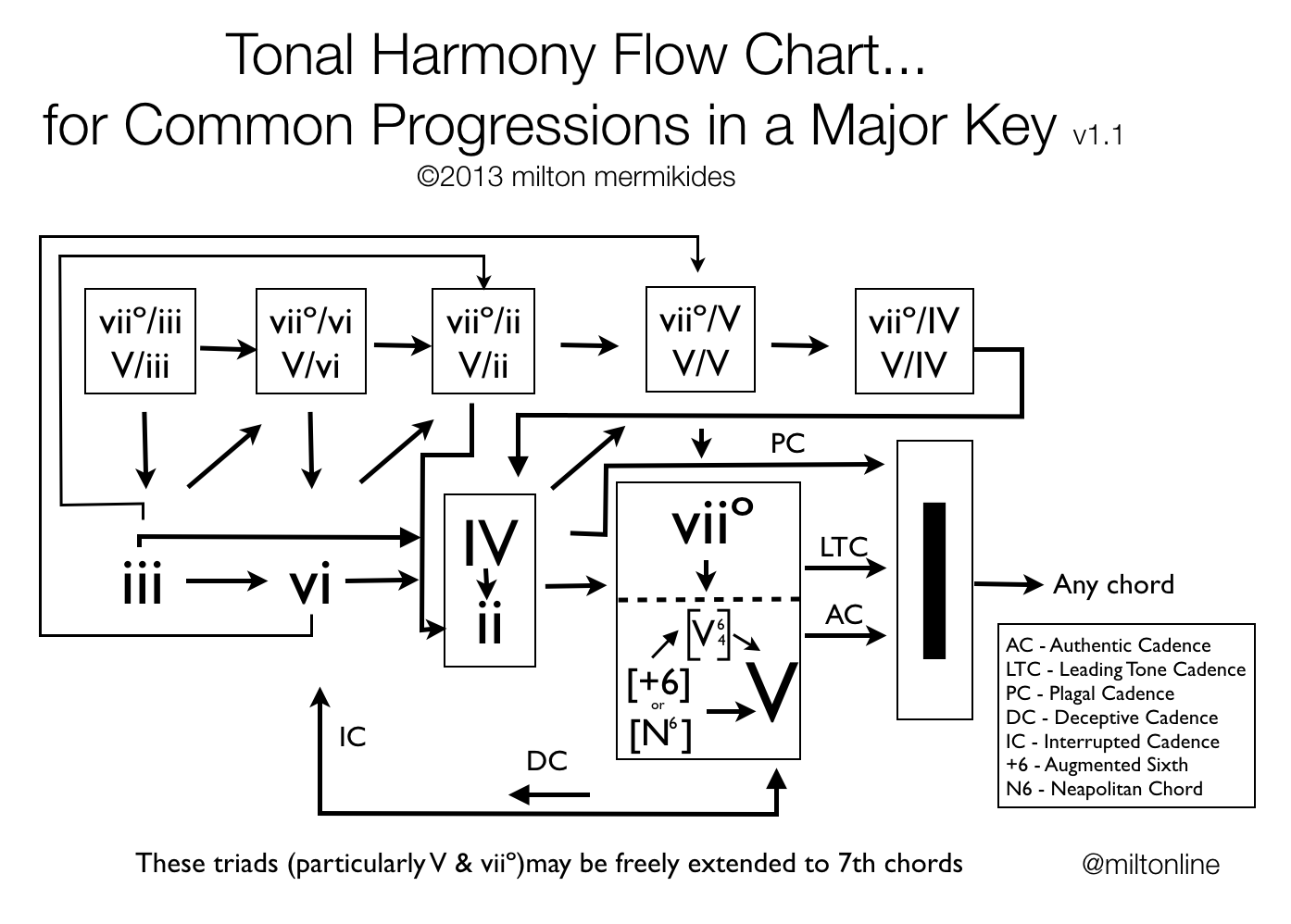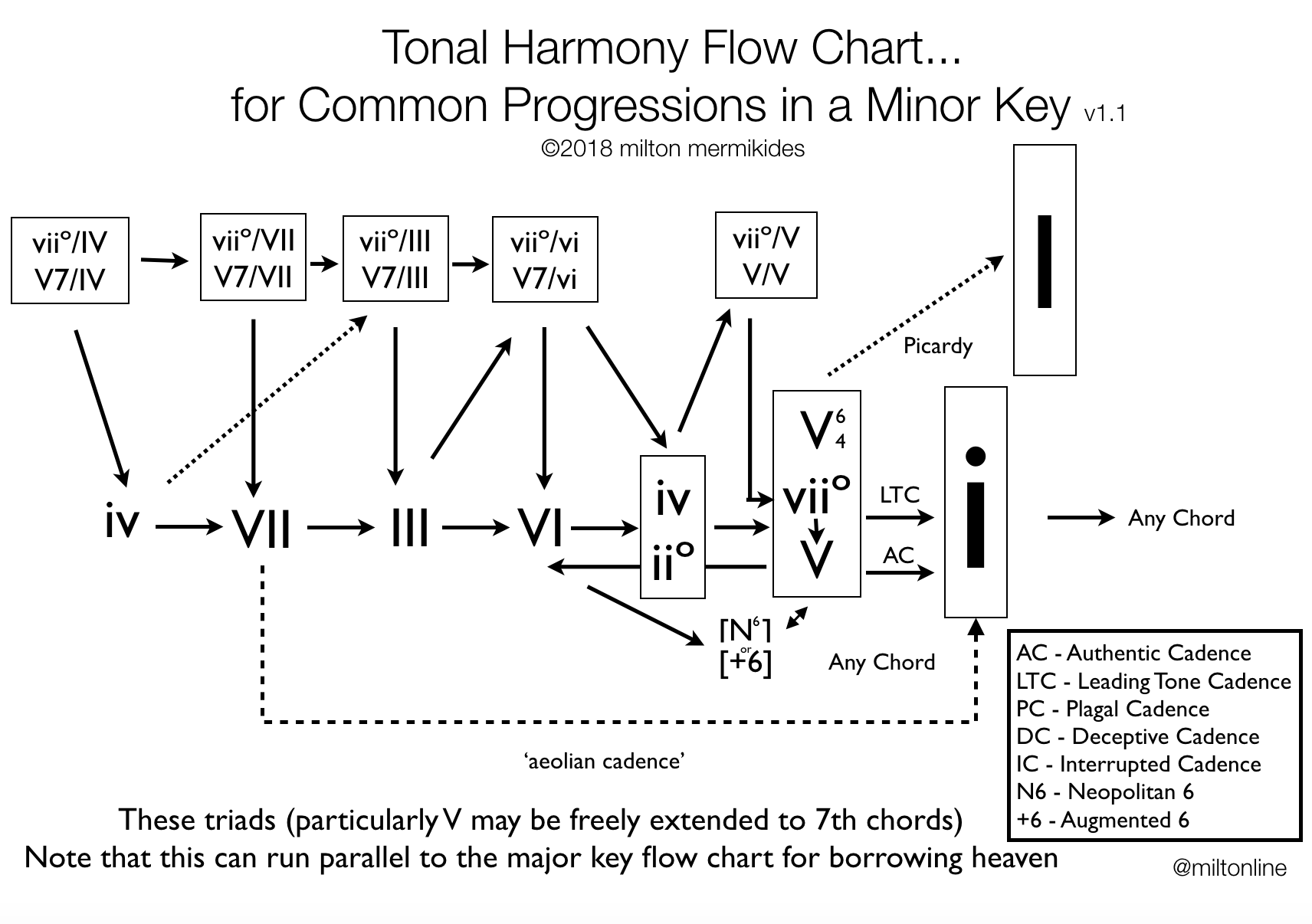By (heavily belated) popular demand here’s a stab at ‘common-practice’ chord progressions in major and now minor keys!


(Visited 26,963 times, 10 visits today)
By (heavily belated) popular demand here’s a stab at ‘common-practice’ chord progressions in major and now minor keys!


7 replies on “Tonal Harmony Flowcharts (Major & Minor)”
Thank-you for these wonderful charts!
Love it, thank you!
Merci pour ces
Organigrammes d’harmonie tonale (majeur et mineur)
The progression charts include a lot more information than all other similar charts i’ve seen. They include 5 types of cadences, more chord types: augmented 6, Neapolitan and secondary dominant chords. They also include the Aeolian Cadence and the Picardy (major tonic chord) for minor. A great ‘bird’s eye view of common progressions.
There are a few things I did notice.
In your book (Popular Music Harmony) it states “Any chord can jump to I (or IV or V). In the major chart, for example, only iii and vi go to IV and only ii, IV and vii go to V.
The chart also shows an arrow from the +6 going to the V6/4. Should that not be to the I6/4 (i.e. in addition to the V). Also, there are a number of chords that can approach the +6. (Similar comments apply to the N6). I suppose that would make the chart more complicated with the extra arrows. Perhaps this is why most charts don’t include the +6 and N6.
Hi! Many thanks for these charts! They are great tools for composing!! I was wondering where to find the following chord sequence in the minor chart: i – VI – VII – i. It is rather common but apparently it is not part of the scheme. Or I am missing anything?
Many thanks in advance for your feedback.
Cheers!
True! These are ‘common-practice’ (= ‘classical heritage’) type tonality. The Aeolian progression you describe would fit into modal and contemporary harmony language. The Bartok Pitch Axis lectures will reach it too…
Thanks for the comment! So no flowchart is complete, and this is concerned with ‘common practice’ to late 19th harmony which does not include a range of (now completely common) modal devices. The Aeolian cadence you include (because of its parallelism) would fall out of that remit, not that there is anything wrong with it. I am creating material along these lines…